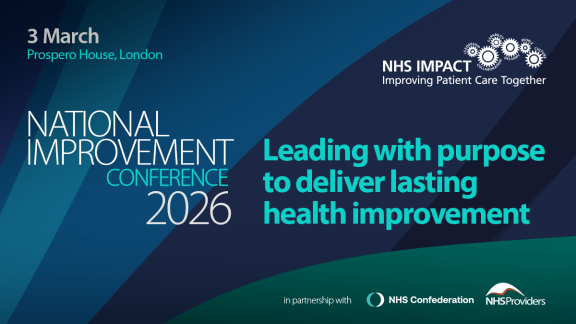Engaging with district councils

As ICSs reflect on the successes and challenges of their first year as statutory entities, James Hood, director at the District Councils’ Network, explains the importance of engaging with district councils – and how to do so.
For over a third of the population of England, and within 21 of the integrated care systems (ICSs) across the country, local government is split into a system of county and district councils, often referred to as the two tiers of local government. County councils cover the whole of a ‘shire county’, with a number of districts sitting within the county footprint covering smaller geographies.
While we’re likely all aware of county council responsibilities for adult and children’s social care and education, the importance of district-level services to wider public health is perhaps less established.
District councils have an average population of 117,000, giving them a unique proximity to their communities, leaving them well placed to understand the specific needs of individual neighbourhoods and places that systems are trying to support. In many cases, district councils are already delivering against many of the local-level problems that ICSs are trying to solve. They can often bring expertise, insight and change that no other organisation can within the system.
Shaping the environment
As the planning authorities in their areas, they shape the environments we live in and play a key role in creating places that encourage physical activity and healthy lives. They also provide leisure centres and wellbeing services, many of which are targeted at high-risk groups, including people with chronic conditions, those less active, and older people.
District councils run welfare and financial support services... helps to tackle poverty and identifies the most vulnerable people in our communities
As housing authorities, district councils are responsible for housebuilding, homelessness prevention, maintaining standards in both social and rented housing, and housing adaptations crucial to aiding hospital discharges.
District councils run various types of welfare and financial support services, from revenues and benefit services to debt advice and warm homes schemes. This helps to tackle poverty and identifies the most vulnerable people within communities.
The District Councils’ Network (DCN) has commissioned a report from The King’s Fund that provides further research on the qualities of districts, namely their agility and closeness to residents, that mean they can be utilised within ICSs to trial and develop place-based projects that address the wider determinants of health.
Driving Better Health Outcomes Through Integrated Care Systems: The Role of District Councils provides further insights into how to build positive relationships with districts in ICSs, align agendas, embed district involvement in the system, and create shared purpose and collective accountability. This type of engagement can eventually lead to improved data sharing, potential joint roles, co-location of services in the heart of communities, and joint commissioning with district councils.
What does successful integration look like?
There are already many examples of where district councils are working successfully with ICSs. North Norfolk and Waveney District Councils run the Waiting Well project, via which multi-agency teams contact people on orthopaedic waiting lists to help them manage their conditions while they wait. Overall, 17 per cent of those contacted have had unmet needs identified. Support includes making minor alterations to people’s homes and using social prescribers to connect them with specialist support in relation to welfare rights, relationship difficulties, social isolation, physical activity programmes, and housing issues.
Lincolnshire’s seven district councils are jointly leading the ICS’s response to the cost-of-living crisis, given that districts already had a picture of the most vulnerable people. Much of the focus of this work has been guiding people through the support available to them to help improve their financial resilience.
One of the first steps to success in integration is to start conversations
In Leicestershire, the Lightbulb Project hosted at Blaby District Council is facilitated by hospital enablement teams, placing housing specialists within all hospitals across Leicestershire and Rutland. The project brings together partners that can help to meet people’s health needs inside their homes, working on things like installing accessibility equipment. The service also provides a range of grants to support hospital discharge and to cover the costs of improving an individual’s home.
This kind of collaboration can deepen over time leading to closer integration, shared roles and resources. In Suffolk and North East Essex ICS, the creation of joint roles has been instrumental in bringing together partners. Key people within its Health and Wellbeing Alliance (the partnership body at place level) have jobs that are shared across district councils, the county council and the Integrated Care Board. This helps to break down barriers between ICS partners and build a culture where ‘we are all public servants’ first, and where organisational agendas and identities come second.
One of the first steps to success in integration is to start conversations. Understand what the district councils are doing in your system and how you can support their work, and join with them in aligning priorities within strategies, co-designing the delivery of system-wide change based on the expertise and experience already present across partners.
If those conversations are not happening already, please do start them now.
James Hood is director at the District Councils’ Network. You can follow network on Twitter @districtcouncil
This blog arose from a well-attended webinar on the role of district councils in ICSs, hosted earlier this year by the Leading Integration Peer Support (LIPS) programme. LIPS is a joint NHS Confederation, Local Government Association and NHS Providers programme offering bespoke support for local health and care systems.



